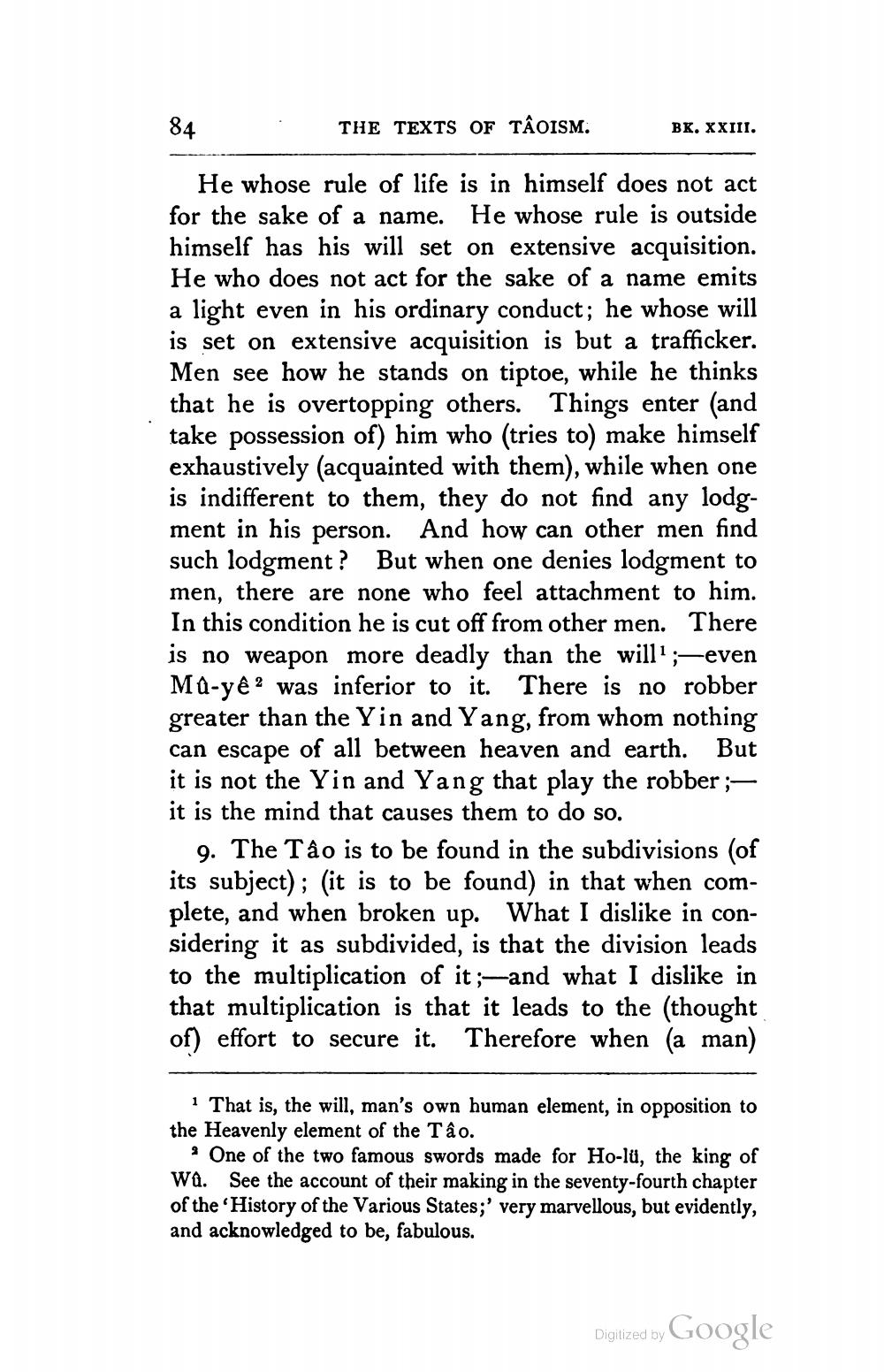________________
84
.
THE TEXTS OF TÂOISM.
BK. XXIII.
He whose rule of life is in himself does not act for the sake of a name. He whose rule is outside himself has his will set on extensive acquisition. He who does not act for the sake of a name emits a light even in his ordinary conduct; he whose will is set on extensive acquisition is but a trafficker. Men see how he stands on tiptoe, while he thinks that he is overtopping others. Things enter (and take possession of) him who (tries to) make himself exhaustively (acquainted with them), while when one is indifferent to them, they do not find any lodgment in his person. And how can other men find such lodgment? But when one denies lodgment to men, there are none who feel attachment to him. In this condition he is cut off from other men. There is no weapon more deadly than the will! ;-even Ma-yê 2 was inferior to it. There is no robber greater than the Yin and Yang, from whom nothing can escape of all between heaven and earth. But it is not the Yin and Yang that play the robber ;it is the mind that causes them to do so.
9. The Tâo is to be found in the subdivisions (of its subject); (it is to be found) in that when complete, and when broken up. What I dislike in considering it as subdivided, is that the division leads to the multiplication of it ;—and what I dislike in that multiplication is that it leads to the (thought of) effort to secure it. Therefore when (a man)
1 That is, the will, man's own human element, in opposition to the Heavenly element of the Tâo.
* One of the two famous swords made for Ho-lü, the king of wa. See the account of their making in the seventy-fourth chapter of the History of the Various States;' very marvellous, but evidently, and acknowledged to be, fabulous.
Digitized by Google




